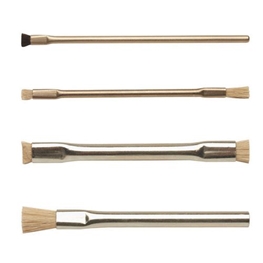Fine-L-Kote SR Silicone Conformal Coating
Silicone Conformal Coating that's ideal for moisture, thermal and vibration protection
FAQ's
What is the difference between full cure and tack-free cure?
Full cure is when it meets all the final specifications. There might be some out-gassing, but it will be as hard as it is going to be, and adhesion is as good as it gets. Tack-free is as the name suggests, not sticky so you can move it along the assembly process.
What does 2-step curing mean?
That just means you break the accelerated curing process into 2 stages. You basically ramp up the heat so the coating has an opportunity to level. Otherwise, you can get a wrinkling or orange peel texture. That texture doesn’t affect performance, just aesthetic. This is not an issue when curing in ambient conditions.
What is the difference between dielectric strength and dielectric withstand voltage?
The dielectric strength is material intrinsic property and withstand voltage is surface property which depend on thickness of the material. They can be slightly different for thicker materials, but for conformal coating, the two numbers should be very close or the same. That is because we test coating at 3-5 mils thickness, calculate, then report the value per mil.
You did not finish submitting your information to request a sample




